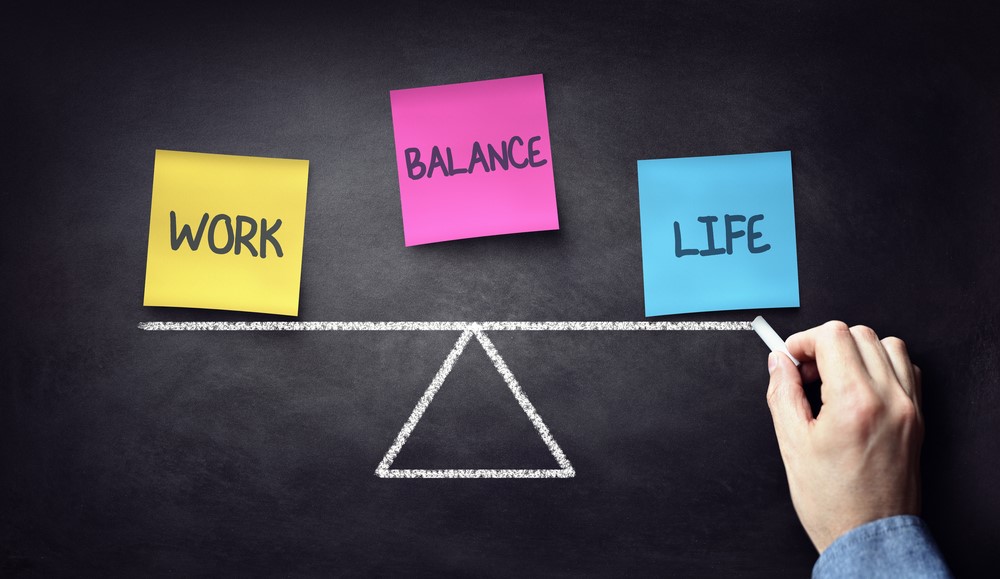
28 Apps To Help You Manage Your Work-Life Balance in 2023
Do you find it difficult to balance work and life? Continuous work-related stress and long working hours can lead to burnout, fatigue, and a decline in your overall physical and mental health. Balancing work with personal time allows you to recharge, relax, and take care of yourself, which is essential for your well-being.
Luckily, there are various apps that can help you establish and maintain boundaries to keep your work from bleeding into your personal time. For example, a phone number app can help you filter out work calls during your personal time. And setting up various “focus modes” on your digital devices can reduce or eliminate work distractions.
Benefits of Maintaining Work-Life Balance
Maintaining a good work-life balance brings loads of benefits. Here are a few important ones:
Reduced Stress
When you’re able to implement a work-life balance, you can relax and recharge. That’s critical for your physical and mental health.
Increased Productivity
A balanced lifestyle improves your focus, decision-making, and overall efficiency, ensuring a healthier and more fulfilling career trajectory.
Improved Mental and Emotional Well-Being
Work-life balance also promotes mental and emotional well-being, allowing you to manage stress, prevent burnout, and find fulfillment in activities outside of work.
Stronger Relationships
When you have more time for loved ones, you can create lasting memories and develop emotional stability and resilience.
Improved Health
A good work-life balance is great for your physical and mental health because you’re more likely to make healthy choices like eating well and staying active.
Enhanced Personal Development
Investing in your personal interests and activities fosters personal growth, expands your horizons, and enhances creativity. This contributes to a well-rounded and fulfilling life beyond your professional domain.
What Apps Promote Work-Life Balance?
There are various types of apps that can help you maintain a work-life balance. We’ve broken your options down into categories to explore.
Time and Task Management Apps
These apps assist you in organizing and managing your time effectively. They help you prioritize tasks, set deadlines, and track progress. Four popular options are Todoist, Trello, TickTick, and Asana.
Communication and Collaboration Apps
These apps facilitate efficient communication and collaboration with colleagues, reducing the need for excessive work hours. They can be especially helpful if you work remotely or have a flexible work arrangement. Popular examples include Slack, Microsoft Teams, Google Workspace, Zoom, and Monday.com.
Health and Wellness Apps
These apps focus on your physical and mental well-being. They provide tools for mindfulness, meditation, exercise, sleep tracking, and stress reduction. Notable examples are Headspace, Calm, MyFitnessPal, Sleep Cycle, and Insight Timer.
Productivity and Focus Apps
These apps help you stay focused, minimize distractions, and optimize your productivity. They offer features like time tracking, website blockers, and Pomodoro timers. Consider options like Forest, Focus@Will, Freedom, and FocusMe.
Time Tracking Apps
Quickly see how you’re spending your time, both at work and at home, to identify areas where you can make changes to improve your work-life balance. Some popular time-tracking apps include RescueTime, Timely, and Clockify.
Calendar and Scheduling Apps:
These apps assist in managing your personal and professional schedules, ensuring you allocate time for both work and personal activities. They enable you to schedule appointments, set reminders, and coordinate events. Examples include Google Calendar, Microsoft Outlook, and Fantastical.
Finance and Budgeting Apps
Maintaining a healthy work-life balance includes managing your finances effectively. These apps help you track expenses, set budgets, and manage your financial goals: Mint, Personal Capital, YNAB (You Need a Budget), and PocketGuard.
Remember, while these apps can assist you, it’s essential to choose those that align with your specific needs and preferences. Additionally, finding the right balance involves personal commitment, setting boundaries, and making conscious choices to prioritize your well-being and personal life alongside work.
Improving Work-Life Balance
Improve work-life balance with these tips.
First, set boundaries: Avoid work-related activities outside work hours. You can also take breaks, move, and get fresh air throughout the day. Next, schedule fun activities. Spend time with loved ones, exercise, and pursue hobbies.
Of course, you also need to learn to say no — don’t overwhelm yourself in the name of balance. Relax and recharge by taking a nap, reading, or connecting with nature. With a few suitable apps, you can experiment to discover what works best for you.
Striking a Balance
Balancing work and life means you have time for things that matter to you. Ultimately, it’s about prioritizing your well-being, relationships, and personal fulfillment alongside your professional
responsibilities. It allows you to lead a more satisfying and sustainable life. Improving your work-life balance takes time and effort, but it’s worth it. When you have a healthy work-life balance, you’re more productive, more creative, and happier.
It’s important to establish healthy boundaries, prioritize self-care, and make conscious choices to create a balanced lifestyle. Remember that while these apps can be helpful, they are tools to assist you in managing your work-life balance. They’ll only help when paired with consistent, healthy boundaries in separating your work from your life.







